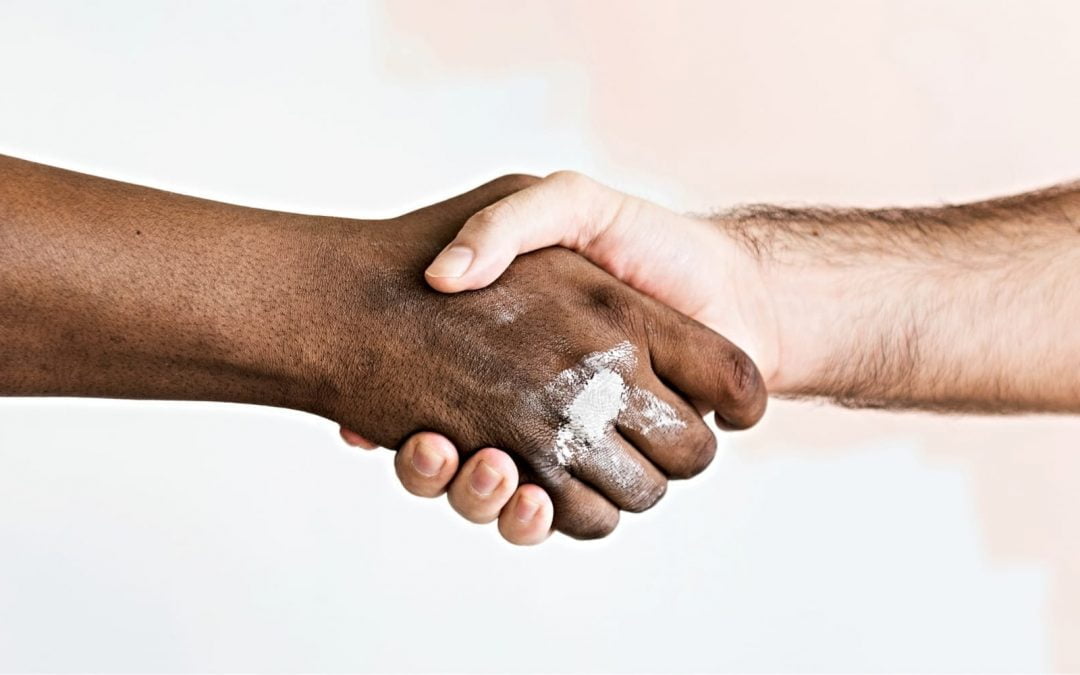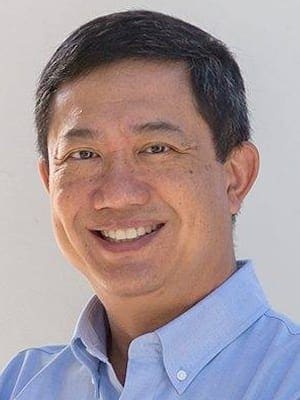Black History Month has taken up new meaning for me this year.
In the past, I intellectually understood why we need to set aside time to remember, acknowledge and celebrate the achievements of black people and culture in the United States.
However, for most of my life, I thought Black History Month was really more for black people and their history.
That attitude began to change as I started to volunteer for the Charlottesville Clergy Collective. We’re an interfaith and interracial group of religious leaders committed to addressing racism in our community.
We’ve gathered monthly for breakfast in the last three years. Over food and conversation, we’re beginning to break down the walls that divide black and white faith leaders.
We’re beginning to build bridges of trust as we listen and learn each others’ stories and experiences over lunch, pulpit exchanges and book study groups.
Through organizing community events, interfaith services and public witness demonstrations, we’re beginning to learn how to work together to achieve common goals.
In time, we’re building friendships that can withstand the messiness of diversity, the challenges of racial work and our own struggles and blind spots.
I’m grateful for the friendship of Alvin Edwards, pastor of Mount Zion First African Baptist Church, for founding the collective and for his openness to work with people across many divides.
I’m grateful for the friendship of Brenda Brown-Grooms, co-pastor of New Beginnings Christian Community. She’s teaching me that life is too short for beating around the bush and not speaking the truth in love.
I’m grateful for the friendship of Sarah A. Kelley, pastor of Faith, Hope and Love International Healing and Deliverance Center. She’s teaching me the power of persistence amid systemic injustice.
I’m grateful for the friendship of Lehman Bates, pastor of Ebenezer Baptist Church. He challenges us with questions regarding the purpose of our activities in order to identify the cause, the condition and the cure for systemic racism.
These and other faith leaders in the collective have become my sisters and brothers in this work. Their lives and their congregations’ lives are becoming interwoven with mine.
I feel a connection with them as we become “one body,” so that when one part of the body suffers, the whole body suffers (1 Corinthians 12:26).
Through these deepening relationships and the sharing of our common humanity, I’m beginning to understand experientially that “black history” is really our history.
So, when Sarah Kelley talks about her family being displaced from their home when white city residents voted to raze the African-American Vinegar Hill neighborhood, that’s no longer just black history; that is our history.
And it informs how we respond to the gentrifying proliferation of luxury housing along the West Main corridor in Charlottesville.
During our Cville2Jtown Pilgrimage last October, when Gayle Jessup White talked about her enslaved ancestors as we read aloud the 360 names of enslaved Africans at Monticello, that’s no longer just black history; that is our history.
And it informs how we respond to the use of “black face” by our politicians and the fight for a living wage at the University of Virginia.
When Karenne Wood reminded us that the land on which we’re living, working and playing was once inhabited and sustained by the Monacan tribe for 15,000 years, that’s no longer just “their” history; that is our history.
And it informs how we respond to the proposed Atlantic Coast Pipeline and compressor station built on Monacan tribal settlements and in the historic African-American community of Union Hill in Buckingham County.
When Mark Charles presented the history of Christianity’s contribution to white supremacy and the oppression of native and black peoples, that’s no longer “their” history; it is our history.
And it should inform how Christian pastors address their congregations’ complicity in establishing or perpetuating racist structures or attitudes.
Georges Erasmus, an Aboriginal leader from Canada, is cited by Mark Charles: “Where common memory is lacking, where people do not share in the same past, there can be no real community. Where community is to be formed, common memory must be created.”
So, how can we create a common memory?
Even if we live in integrated neighborhoods, we often live within the segregated silos of our memories and our histories apart from the memories and histories of our neighbors of color.
Several weeks ago, the Charlottesville Clergy Collective organized a dinner gathering called “Conversations toward Reconciliation,” in which more than 200 people from 31 different faith communities gathered to share a meal and begin conversations around history and racial justice.
Our hope for that event (and subsequent events this year) is that it will help participants to engage with their own congregations in conversations about race.
We hope to encourage them to learn and record stories of the roles their congregations played in the history of race in Charlottesville.
In the process, may they build relationships with members of other faith communities to support, encourage and learn from one another as we all do this work.
I see this as one way that we can begin to create a common memory, a common history among some of the faith communities in town.
I anticipate that this will be challenging work, and some participants will face resistance from within their own faith communities.
But I also pray that those participants in this journey will experience a deeper connection with one another, a connection that embraces our shared humanity and forges a common history.
When February comes around next year, I’ll still be glad to celebrate Black History Month.
Yet I long for the day when every month will be Black History Month in our hearts, minds and spirits.
Editor’s note: A version of this article first appeared on Cheuk’s website. It is used with permission.
Leadership coach and church consultant at MichaelKCheuk.com. He is a Good Faith Media governing board member, who lives in Charlottesville, Virginia.


